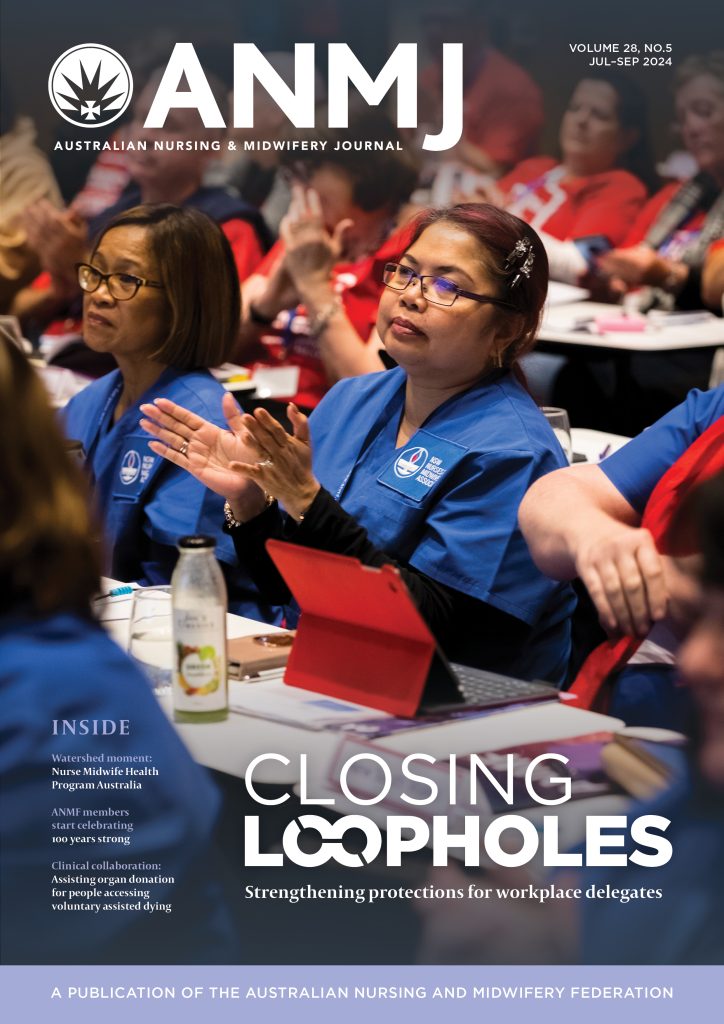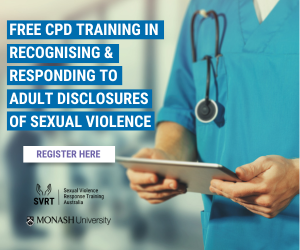Nurses and midwives take the spotlight with a growing acknowledgement of the importance of nurses and midwives both in Australia and globally.
International Midwives’ and Nurses’ Day fall on 5 and 12 May respectively.
Further, 2020 has been declared by the World Health Organization (WHO), as ‘Year of the Nurse and Midwife’ coinciding with the 200th anniversary of Florence Nightingale’s birthday, the culmination of the global Nursing Now campaign, and launch of the WHO’s first ‘State of the World’s Nursing’ and second ‘State of the World’s Midwifery’ reports (WHO 2018).
This focus on nursing and midwifery is an opportunity to reflect on the contributions of the professions to care in all its contexts, and to consider how nurses and midwives continue to champion the interests and perspectives of patients.
Along with providing care, engaging with research is vital to nursing and midwifery practice and a key contribution the professions make to healthcare and research more broadly.
Nurses and midwives utilise knowledge and outcomes from research daily and may undertake quality improvement projects and accreditation processes. However despite many having an interest in doing so, not all nurses and midwives undertake formalised research.
While challenging to balance with clinical responsibilities, supporting nurses and midwives to lead and collaborate on research projects during their education and careers could be one avenue for attracting and retaining a skilled and engaged workforce.
Nursing and midwifery research may focus upon factors that affect the ability of people or populations to maintain or enhance wellbeing and minimise the impacts of illness as well as broader issues of health, illness, health services development and management, workforce, models of care, policy, and education.
Nursing and midwifery research also often involves health consumers and can be an important way of partnering with and advocating on their behalf.
Arising from the dementia care context, person centred care is an important concept in health and aged care and a growing focus in nursing and midwifery research and practice.
Person-centred care, and the related concept of women centred care must be distinguished from the related concept of patient-centred care. Both concepts emphasise individualised care appropriate to each person’s preferences and needs and also encompasses the perspectives of significant others.
Both concepts refocus imbalances in healthcare from the historically disease and medically-dominated perspective to enable collaborative partnerships between health consumers and their healthcare team.
Perhaps the clearest way of discerning patient versus person-centred care is understanding that patient-centred care has the primary goal of achieving a functional life for the patient, while person-centred care is focussed on achieving a meaningful life for the person.
Person-centred care is thus an extension of patient centred care and is more aligned to the notion of holistic care rather than simply in the context of them as a patient (Håkansson Eklund et al. 2019).
Nurses and midwives have a role in collaborating with and advocating for those they care for in all contexts eliciting each person’s choices, preferences, and perspectives and ensuring that the care they engage in with the person is considerate of and responsive to these.
Because in many contexts they provide the bulk of face-to-face care to health consumers, nurses and midwives are ideally placed to take a central role in the provision of and research in person-centred care.
This will be vital to many contemporary and future issues and challenges facing Australian health, maternity, and aged care from ensuing appropriate, safe, high-quality care for those in aged care (Marriott-Statham 2018), to closing the gap between Aboriginal and Torres Strait Islander people’s health and wellbeing and mainstream populations (McMillan et al. 2010).
Micah Peters would like to acknowledge the valuable comments provided by Dr Nadia Corsini.
References
Håkansson Eklund, J., Holmström, I.K., Kumlin, T., Kaminsky, E., et al. 2019. Same same or different? A review of reviews of person-centered and patient-centered care. Patient Educ Couns;102(1):3-11.
Marriott-Statham, K., Mackay, M., Brennan, N., Mackay J. 2018. Empowering aged care nurses to deliver person-centred care: Enabling nurses to shine. Nurse Educ Pract; Jul(31):112-7.
McMillan, F., Kampers, D., Traynor, V., Dewing. 2010. Person-centred care as caring for country. Dementia; 9(2):163-7.
World Health Organisation (WHO). 2018. State of the Worlds’ Nursing Report/State of the World’s Midwifery 2020 Report. World Health Organization. Geneva. Available: who.int/hrh/nursing_midwifery/stateof-the-worlds-nursing-andmidwifery-2020-get-engaged.pdf?ua=1
Dr Micah DJ Peters is ANMF National Policy Research Adviser (Federal Office) based in the Rosemary Bryant AO Research Centre, School of Nursing and Midwifery, University of South Australia









